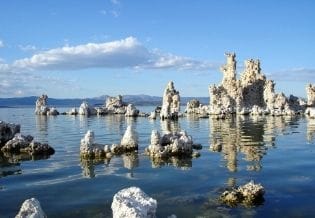About the International Journal of Limnology
Advancing the science of inland aquatic systems through rigorous peer-reviewed scholarship that connects limnological research with freshwater ecology, water resource management, and global sustainability.
Freshwater ecosystems face unprecedented pressures from climate change, eutrophication, invasive species, and land use intensification. IJLI provides a scholarly home for research that clarifies these challenges and identifies evidence-based pathways toward resilience. Our editorial board - comprising experts in aquatic ecology, hydrobiology, biogeochemical cycling, and environmental policy - curates submissions that deliver scientific rigor, methodological transparency, and translational relevance.
Each manuscript undergoes thorough peer review emphasizing data quality, statistical robustness, and ecological context. Accepted articles are enhanced with structured abstracts, visual summaries, and discoverability metadata to maximize impact across academic, governmental, and conservation audiences.
IJLI welcomes Original Research Articles, Systematic Reviews, Case Studies, Methodological Papers, Review Articles & Literature Reviews, Mini-Reviews, Short Communications, Rapid Communications, Case Reports, Clinical Trial Reports, Letters to the Editor, Editorials, Commentaries, Perspectives, Opinion Pieces, Book Reviews, Conference Proceedings, and Theses that deepen understanding of freshwater systems. Our scope reflects the multidisciplinary nature of modern limnology, integrating ecology, hydrology, chemistry, and social science to address complex aquatic challenges.
Phytoplankton, zooplankton, benthic invertebrates, fish communities, macrophyte dynamics, trophic interactions, and biodiversity assessments.
Nutrient dynamics (nitrogen, phosphorus), carbon cycling, sediment-water interactions, redox processes, and elemental fluxes in aquatic systems.
Eutrophication, harmful algal blooms, contaminant fate and transport, heavy metals, microplastics, and emerging pollutants in freshwater.
Lake and river hydrology, water balance, flow regimes, groundwater-surface water interactions, and hydrological modeling.
Temperature effects, stratification dynamics, extreme events, phenological shifts, and long-term monitoring of climate-driven changes.
Lake and river restoration, adaptive management, ecosystem services valuation, policy frameworks, and stakeholder engagement.
Wetland ecology, floodplain dynamics, carbon sequestration, habitat connectivity, and hydrological regulation.
Sediment core analysis, historical reconstructions, long-term ecosystem trajectories, and baseline condition assessments.
Satellite-based monitoring, GIS applications, ecological modeling, predictive frameworks, and data integration tools.
IJLI's submission workflow is designed to support research teams navigating manuscript preparation, peer review, and publication. Authors can submit through our online portal or via email to [email protected]. Our editorial team acknowledges submissions within 72 hours and maintains transparent communication throughout the review cycle.
- Review IJLI's Aims & Scope and Instructions for Authors to ensure alignment.
- Prepare manuscripts following standard formatting (title, abstract, keywords, introduction, methods, results, discussion, references).
- Include a cover letter summarizing novelty, methodological strengths, and relevance to freshwater science.
- Document ethical approvals, data accessibility, and conflict of interest disclosures.
- Submit supplementary materials (datasets, supporting figures, video abstracts) to enhance reproducibility.
Peer review typically takes 24 days, with decisions communicated alongside constructive reviewer feedback. Authors are encouraged to address comments thoroughly in revision letters. For language support, IJLI offers a language editing service to ensure clarity and precision.
IJLI publishes all content under Creative Commons Attribution 4.0 International (CC BY 4.0), granting authors copyright retention while enabling unrestricted reuse with proper attribution. This licensing model supports teaching, policy integration, and follow-on research without permission barriers.
Article processing charges (APCs) apply only after acceptance to cover editorial operations, peer review management, and production services. Full pricing details, institutional agreements, and waiver eligibility are available on the APC information page. Researchers from resource-limited settings are encouraged to inquire about discretionary support.
- Rapid publication timeline with efficient peer review and production workflows
- Global visibility through indexing in specialized and multidisciplinary databases
- Expert editorial guidance from limnologists, aquatic ecologists, and hydrologists
- Open access dissemination maximizing reach to practitioners and policy makers
- High-quality peer review delivering constructive, science-focused feedback
- Data sharing encouragement to promote reproducibility and meta-analyses
- Post-publication promotion via social media, newsletters, and thematic collections
Editorial Board
International Panel of Freshwater Science ExpertsIJLI's editorial board comprises leading authorities in limnology, aquatic ecology, biogeochemistry, hydrology, and environmental management. Board members facilitate rigorous peer review, uphold ethical standards, and ensure that published research meets the highest benchmarks for scientific integrity. Their collective expertise spans temperate and tropical systems, lentic and lotic environments, and fundamental to applied research paradigms.
Explore the full editorial board roster and areas of expertise at the IJLI Editorial Board page.
IJLI articles are indexed across platforms that serve limnologists, ecologists, hydrologists, and environmental scientists, ensuring broad discoverability and citation potential.
- Google Scholar, Semantic Scholar, and academic search engines for interdisciplinary reach
- ResearchBib, SciSpace, Scilit, and subject-specific aggregators
- DOI registration via Crossref for permanent citation tracking
- Integration with ORCID, ResearchGate, and Academia.edu for researcher profile enhancement
Authors can amplify their work through IJLI's Call for Papers initiatives, which spotlight emerging research priorities such as climate adaptation, invasive species management, and water quality monitoring innovations.
IJLI welcomes proposals for thematic special issues that address pressing limnological challenges or synthesize knowledge across subfields. Guest editors can submit proposals via the special issue proposal portal. Active calls for contributions are available through the special issue submission page.
Researchers can stay informed about new publications through the current issue or explore past scholarship in the previous issues archive.


